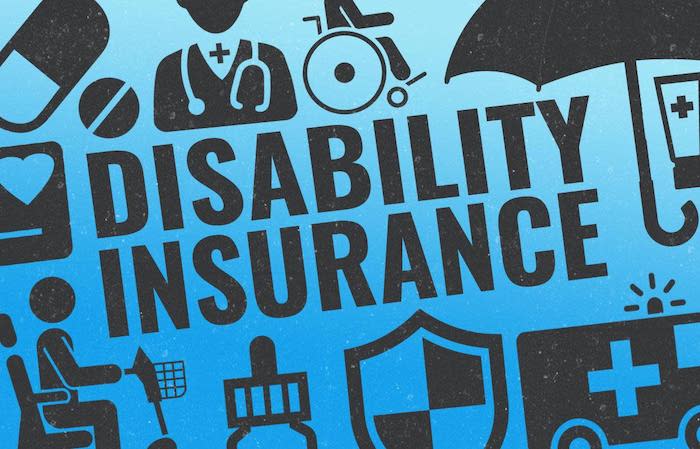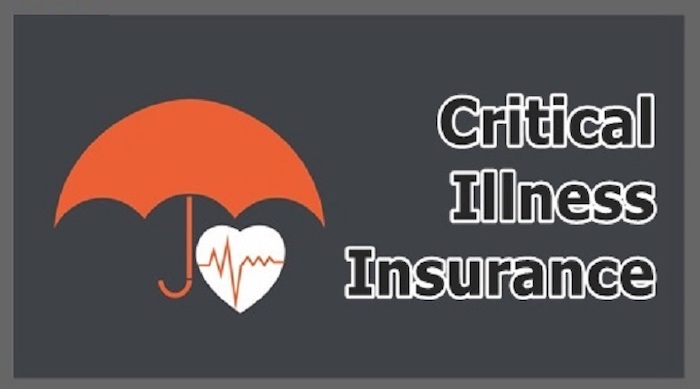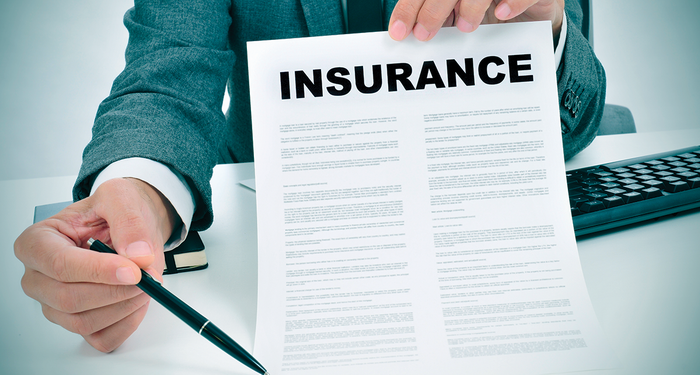According to a report by the Social Security Administration, one in four 20-year-olds will become disabled before retirement age. This statistic highlights the importance of protecting your income and assets with disability insurance. Disability insurance provides financial support if you cannot work due to an injury or illness. Without disability insurance, a disability can lead to financial strain and affect your ability to meet basic needs such as paying bills or buying groceries.
This article will discuss the importance of disability insurance and why you should consider it to safeguard your income. We will explore the types of disability insurance, critical features of policies, and factors to consider when choosing disability insurance. We will also cover how to purchase disability insurance, frequently asked questions, and provide final thoughts and recommendations.
What is Disability Insurance?
Disability insurance is a financial product that offers income replacement in case you become disabled and unable to work due to an illness or injury. Its primary purpose is to assist you in meeting your financial obligations, such as paying bills, buying groceries, and covering medical expenses. By providing a source of income, disability insurance can help protect your savings and assets in case of disability.
There are two main types of disability insurance: short-term disability insurance and long-term disability insurance. Short-term disability insurance typically offers benefits for a period ranging from a few months to a year. In contrast, long-term disability insurance provides benefits for a more extended period, which can last until retirement age. You can purchase disability insurance as an individual policy, or it may be available through your employer as a group policy.
It is important to note that disability insurance is different from workers’ compensation and Social Security Disability Insurance (SSDI). Workers’ compensation provides benefits to employees who are injured on the job, while SSDI provides benefits to individuals who are unable to work due to a disability and have earned enough work credits. Disability insurance provides benefits to individuals who become disabled due to an injury or illness regardless of whether the disability is work-related.
Why You Need Disability Insurance
Disability insurance is important because a disability can have a significant impact on your income and finances. According to the Council for Disability Awareness, more than one in four of today’s 20-year-olds will become disabled before they retire. If you become disabled and are unable to work, disability insurance can provide a source of income to help you cover your living expenses and maintain your quality of life.
Without disability insurance, a disability can lead to financial strain and may affect your ability to meet basic needs such as paying bills or buying groceries. In fact, according to a study by the Consumer Federation of America, more than half of all bankruptcies are caused by medical debt. Disability insurance can help protect your savings and assets and ensure that you are able to maintain your standard of living even if you are unable to work due to a disability.
It is also important to consider that disabilities can happen to anyone, regardless of age or occupation. Accidents, illnesses, and chronic conditions can all lead to a disability that prevents you from working. Disability insurance can help provide peace of mind knowing that you have financial protection in the event of a disability.
Factors to Consider When Choosing Disability Insurance
When choosing disability insurance, there are several factors to consider to ensure that you select a policy that meets your needs. These factors include:
Type of Policy
There are two main types of disability insurance: short-term and long-term. Short-term disability insurance typically provides benefits for a period of a few months up to a year, while long-term disability insurance provides benefits for a longer period, sometimes until retirement age. Consider which type of policy is best for you based on your financial situation and how long you would need income replacement in the event of a disability.
Benefit Amount
The benefit amount is the amount of income replacement you will receive if you become disabled and are unable to work. Consider how much income you would need to cover your living expenses and maintain your standard of living in the event of a disability. It is important to choose a benefit amount that is sufficient to meet your needs.
Elimination Period
The elimination period is the amount of time between when you become disabled and when you start receiving benefits. Consider how long you can go without income and select an elimination period that is reasonable based on your financial situation.
Definition of Disability
The definition of disability determines when you are eligible to receive benefits. Some policies have a stricter definition of disability, while others are more liberal. Consider which definition of disability is best for you based on your occupation and medical history.
Premiums
Premiums are the amount you pay for your disability insurance policy. Consider how much you can afford to pay in premiums and select a policy that fits your budget.
Exclusions and Limitations
Exclusions and limitations are specific circumstances under which you may not be eligible to receive benefits. It is important to understand the exclusions and limitations of your policy to ensure that you select a policy that meets your needs.
By considering these factors, you can select a disability insurance policy that provides the coverage you need in the event of a disability.
How to Buy Disability Insurance
If you have decided that disability insurance is right for you, there are several steps you can take to purchase a policy:
Determine Your Needs
Before you begin shopping for disability insurance, determine your needs based on your financial situation and risk factors. Consider your income, expenses, and potential sources of income replacement in the event of a disability.
Research Providers
Research disability insurance providers to determine which companies offer policies that meet your needs. Consider the provider’s reputation, financial stability, and customer service.
Compare Policies
Compare disability insurance policies from different providers to determine which policies offer the best coverage for your needs. Consider the policy’s benefits, elimination period, definition of disability, and exclusions and limitations.
Obtain Quotes
Obtain quotes from several disability insurance providers to compare premiums and coverage. Be sure to compare policies with similar benefits and features to ensure an accurate comparison.
Apply for Coverage
Once you have selected a disability insurance policy, complete the application process. You may need to provide medical information and undergo a medical exam. Be sure to read and understand the policy’s terms and conditions before signing the contract.
Pay Premiums
Pay your disability insurance premiums on time to ensure that your policy remains in force. Failure to pay premiums may result in the policy being canceled, and you may lose your coverage.
By following these steps, you can purchase a disability insurance policy that provides the coverage you need in the event of a disability.
Frequently Asked Questions
Here are some frequently asked questions about disability insurance:
Q1. What is disability insurance?
Disability insurance is a type of insurance that provides income replacement if you become disabled and are unable to work.
Q2. Who needs disability insurance?
Anyone who relies on their income to cover their living expenses should consider disability insurance. This includes people who are self-employed, those with significant debt, and those who have dependents.
Q3. What does disability insurance cover?
Disability insurance covers income replacement in the event of a disability. Depending on the policy, it may also cover rehabilitation expenses, such as physical therapy or occupational therapy.
Q4. How long do disability insurance benefits last?
The length of disability insurance benefits depends on the policy. Short-term disability insurance benefits typically last a few months to a year, while long-term disability insurance benefits can last until retirement age.
Q5. How much disability insurance coverage do I need?
The amount of disability insurance coverage you need depends on your income and living expenses. Consider how much income you would need to cover your living expenses and maintain your standard of living in the event of a disability.
Q6. How much does disability insurance cost?
The cost of disability insurance varies based on several factors, including the type of policy, benefit amount, elimination period, and definition of disability. On average, disability insurance premiums range from 1% to 4% of your annual income.
Q7. When should I buy disability insurance?
It is best to buy disability insurance when you are healthy and have a steady income. If you wait until you have a medical condition or have experienced a disability, you may not be eligible for coverage or may have to pay higher premiums.
Q8. Can I buy disability insurance if I have a pre-existing condition?
It depends on the policy and the severity of the pre-existing condition. Some policies may exclude coverage for pre-existing conditions, while others may provide coverage with certain limitations or exclusions.
Q9. Can I cancel my disability insurance policy?
Yes, you can cancel your disability insurance policy at any time. However, it is important to understand the terms of your policy, as canceling your policy may result in the loss of benefits or a penalty.
Conclusion
Disability insurance is an important financial safety net that can provide income replacement if you become disabled and are unable to work. It can help you maintain your standard of living and cover your living expenses while you recover from an injury or illness.
When shopping for disability insurance, it’s important to consider your financial situation, risk factors, and policy options. Look for a reputable provider with a strong financial rating and a policy that provides the coverage you need.
By taking the time to research and purchase disability insurance, you can protect your income and secure your financial future. Don’t wait until it’s too late – consider disability insurance today.




